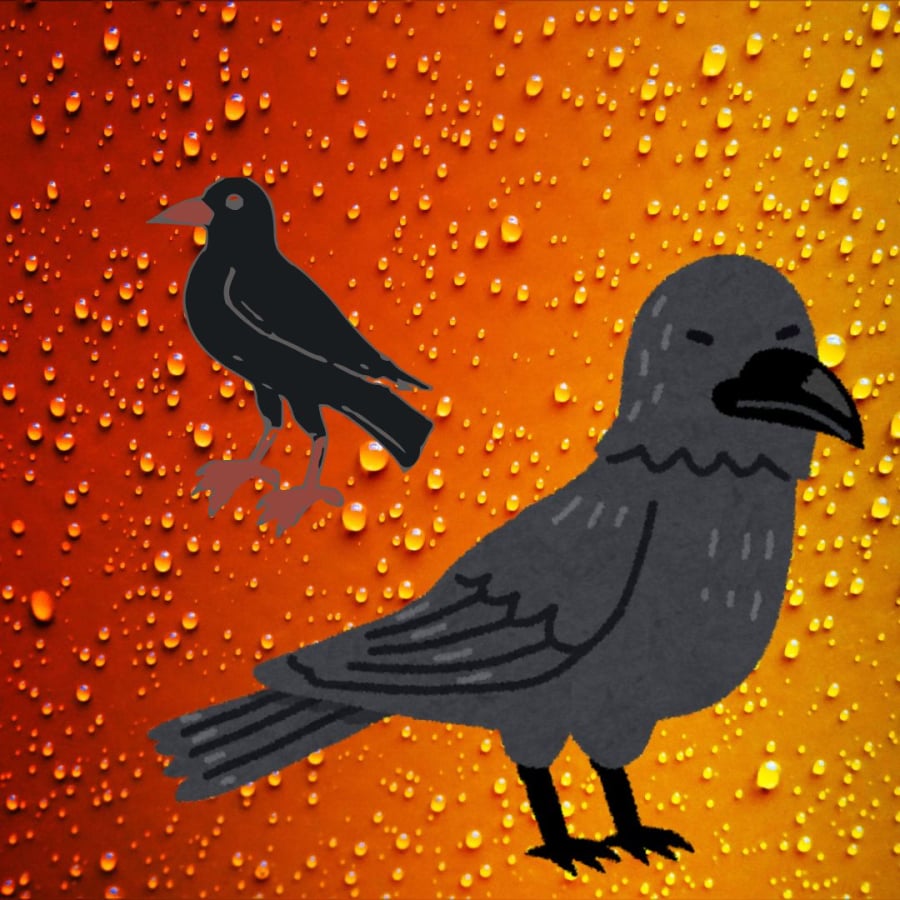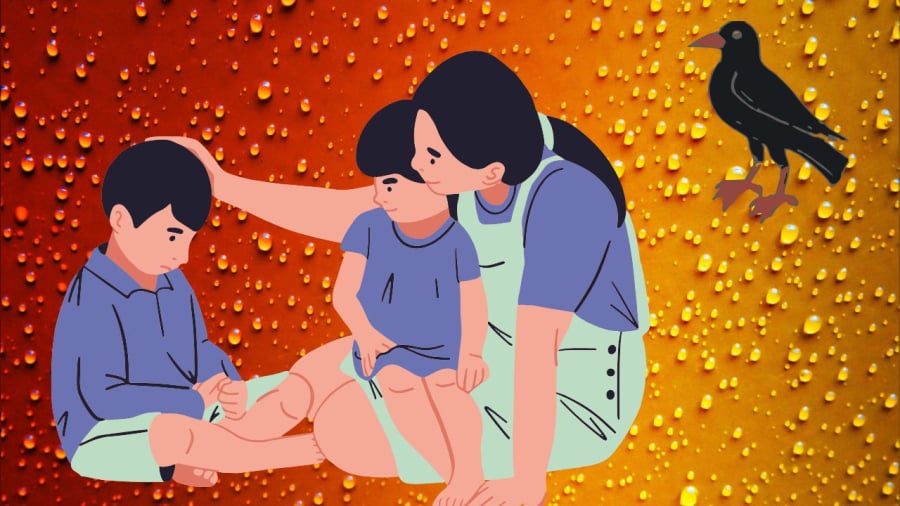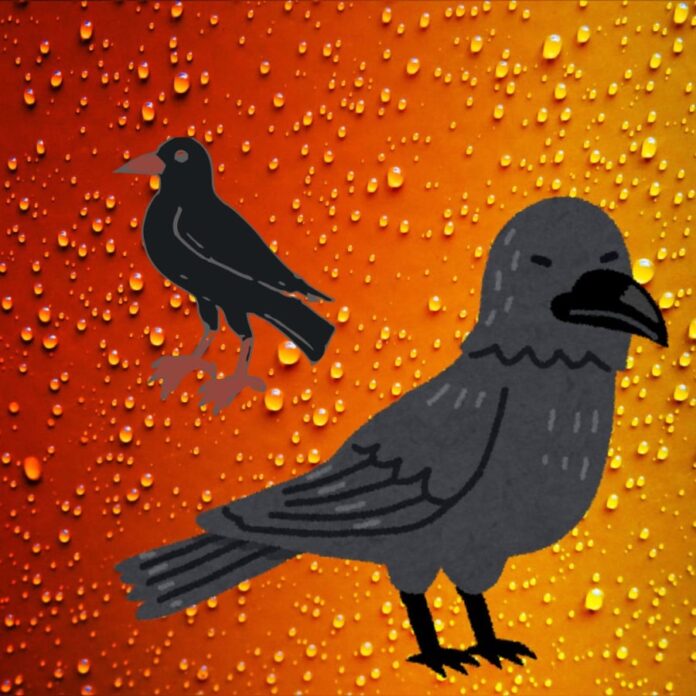No parent wants their child to become defiant, rude, or undisciplined. However, many parents face the disappointment of their children becoming more stubborn and difficult as they grow up. Instead of blaming and labeling their children as “naughty” or “ungrateful,” it is important to remember that children reflect their parents’ parenting styles.
One profound philosophy that helps parents reflect on their own actions is called the “Law of the Crow” – a humane life lesson that awakens parents: when your child is not on the right path, don’t be quick to blame them; instead, ask yourself where you went wrong in their education.

What is the Law of the Crow?
The “Law of the Crow” is not a scientific concept but a metaphorical expression derived from the unique behavior of crows in nature. Crows are known for their harsh and unpleasant caws, often shunned or chased away by other species. Instead of changing its behavior, the crow flies away, thinking, “No one likes me because I am not like them.”
However, the truth is that not every place will accept it, and the rejection lies not with others but within the crow itself.
From this image, the “Law of the Crow” conveys a powerful message: When you feel rejected or unable to fit in, instead of blaming the world, look within and reflect on your own actions.
Applying the Law of the Crow in Parenting
1. When your child is defiant, don’t blame them; reflect on your parenting methods.
When your child acts defiantly, argues, or lacks manners, many parents’ first reaction is to scold them. But how many of us stop to ask ourselves:
Have I ever spoken like that in front of my child?
Do I take the time to listen to my child?
Do I keep my promises to my child or give up too easily?
In reality, children learn by observation. If they constantly witness their parents shouting, insulting each other, or disrespecting their elders, they will replicate these behaviors as a “normal” thing to do.

2. When your child fails, help them change instead of assuming it’s their nature.
Just as the crow is not liked for its caw, your child may not be well-liked by their peers due to their behavior, such as being hot-tempered or selfish. Instead of complaining that “no one likes my child,” teach them how to change:
Teach your child to apologize and correct their mistakes.
Encourage your child to listen and respect the feelings of others.
Guide your child to change little by little instead of labeling them as “that’s just how they are.”
3. Parents must change for their children to change.
If the crow continues to fly elsewhere without changing its caw, it will remain rejected. Similarly, if parents persist with outdated, authoritarian, and scolding teaching methods, their children will become increasingly distant and rebellious.
The Law of the Crow emphasizes that it’s not that others don’t like you; it’s that you haven’t changed to fit in better. The same goes for parents; if you want your child to listen, you must first change yourself: your attitude, communication style, the time you spend with your child, and your patience and understanding.
The fault does not lie with the child but with the “mirror” they are reflecting. Children are a reflection of their parents’ behavior. A misbehaving child is not inherently naughty but is a result of inconsistent parenting, a lack of timely attention, or an inadequate environment for character-building.
Signs that parents need to re-evaluate their methods:
Your child lies often → Because they fear punishment instead of feeling heard.
Your child screams and argues → Because they are subjected to imposition and are not allowed to express themselves.
Your child lacks affection → Because you teach with “commands” instead of from the heart.
Conclusion: To have an obedient child, parents must be the “changing crow.”
The “Law of the Crow” is not about the bird but about each of us. When life doesn’t go as planned, don’t blame circumstances. When your child misbehaves, don’t blame them. Ask yourself:
What did I do wrong?
Have I neglected my role as a guide?
Have I been the “crow that changes its caw,” or have I blamed the whole world?
In education, change begins with parents and no one else. Children are a product of how we live and teach every day.
3 Secrets Smart Parents Keep From Their Children: Nurturing Love, Happy Parents, Raising Responsible Adults
Parenting is a challenging yet rewarding journey, and smart parents understand the importance of fostering independence in their children. They masterfully conceal three secrets from their children, ensuring a burden-free parental life and encouraging their little ones to blossom into self-reliant individuals.
What Parenting Style Does a Cancerian Embrace?
“Cancer, the nurturer of the zodiac, embodies the epitome of parental aspirations for many. Their innate familial tendencies and devotion to their kin make them seemingly ideal parents. However, like all zodiac signs, there is a flip side to this coin, and understanding the potential pitfalls is essential.”







































